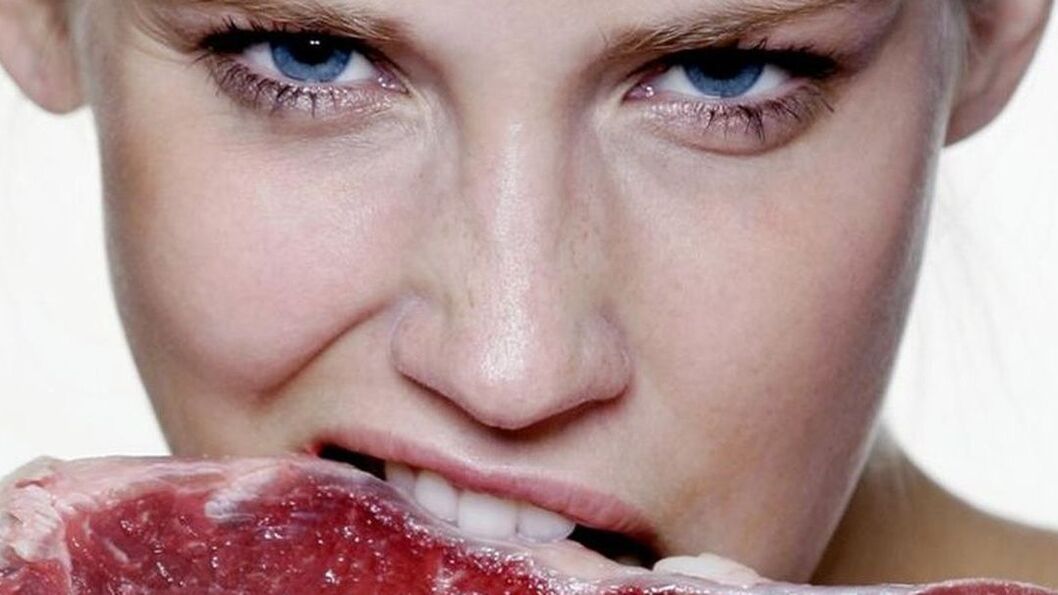
So, the magic ketogenic diet. There are so many rumors and speculations surrounding her, how many hopes are placed on her, how many hours have been spent in the bathroom because of her. Ketogenic diet apologists preach about rapidly melting fat glaciers, incredible performance, crystal clear mental clarity, etc. etc. with a similar spirit. We don't know where this data comes from, because scientists are just beginning to study this diet under the microscope.
Let's look at all the pros and cons of a high-fat diet.
The essence for beginners - what is it in simple words?
Let's immediately clarify one important point: a high-fat diet (ketogenic diet) is still not a low-carb diet, it is primarily a very high-fat diet.
The ketogenic diet is a low-carbohydrate diet for weight loss with a moderate amount of protein in the diet and active consumption of fats.
If you are counting calories, the percentage of calorie distribution would be:
- 80% of calories come from fat.
- 15% protein kcal. ,
- the remaining 5% are carbohydrates.
That is, at least 75% of the calories in your diet must come from fat; whose sources can be eggs, bacon, sausage, avocados, vegetable oils, coconut oil and butter.
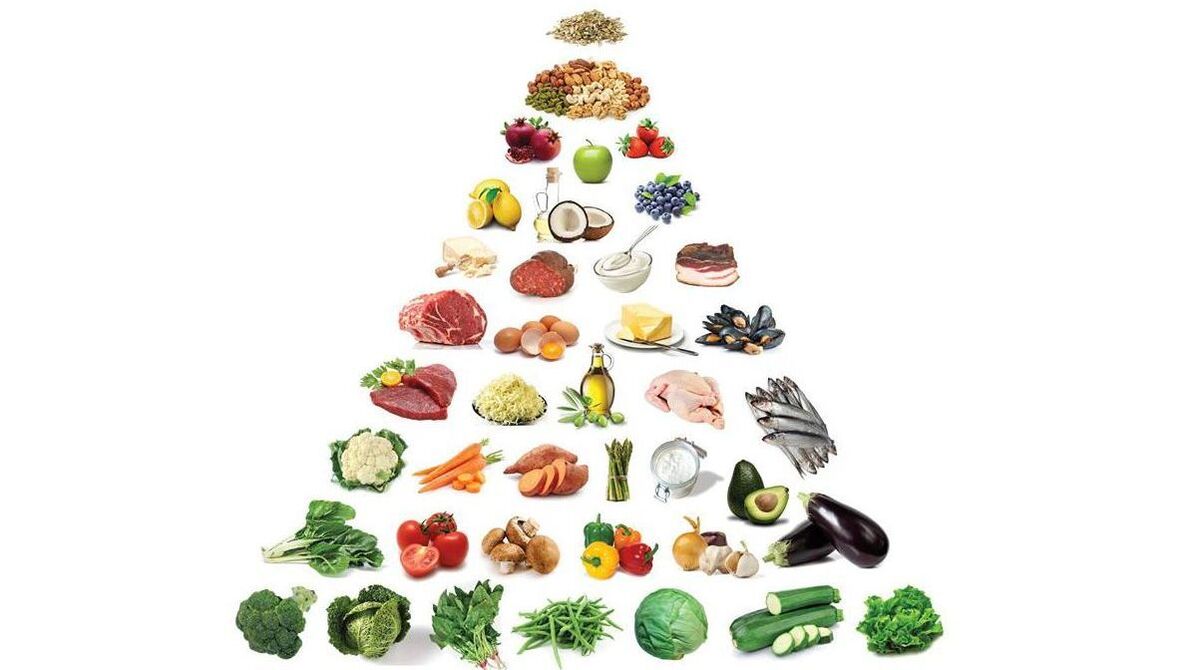
We also want to point out that this is not a diet based on so-called animal fats. Purely meat diet, not at all! Vegetables are consumed, but moderately or completely avoiding starchy vegetables, such as potatoes.
What is important to know for beginners? What is a "fatty diet" in simple words?
So, the essence of the ketogenic diet is simple in words. With such a nutritional system, the body enters a state called "ketosis" and begins to synthesize ketones for the subsequent generation of energy (hence the name "ketogenic" diet), and such a transition is only possible if the intake of carbohydrates is strictly limited.
Our body is able to fully satisfy its needs from fat reserves. But the absence of carbohydrates is terrible for our brain and nervous system, which need glucose: the brain cannot use fatty acids for energy.
When we ignore carbohydrates, the body, in order not to stretch its legs, begins to pervert and create carbohydrate substitutes: ketone bodies.
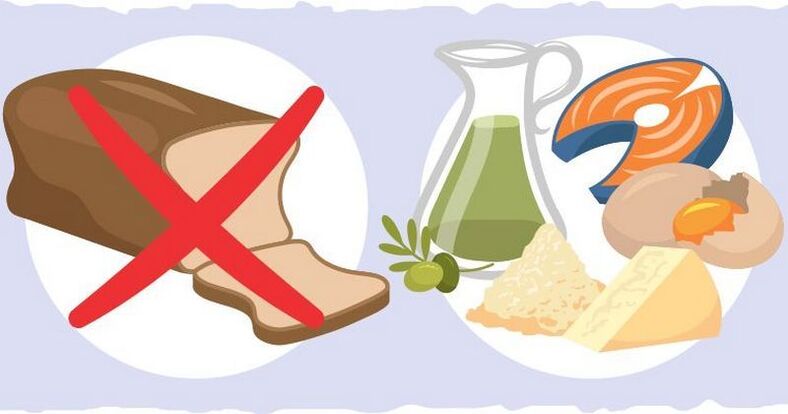
Ketone bodies are organic biomolecules, soluble in aqueous media, that are synthesized in the liver from fatty acids when food intake (especially carbohydrates) decreases. Once transported to extrahepatic tissues, these biomolecules can be used as an energy source.
Ketone bodies are constantly synthesized in small quantities in the human body, but usually the concentration of ketones is so low that they are not detected in a urine analysis.
However, when the level of ketone bodies in the blood increases (a condition known as ketonemia), they begin to be excreted in the urine (known as ketonuria); Ketonemia and ketonuria taken together indicate the body's transition to a state of ketosis.
The ultimate goal of the ketogenic diet is to place the body in a state of nutritional ketosis (not to be confused with pathological ketosis), which ultimately directs the metabolism to use fatty acids and ketone bodies as the primary source of energy.
In the initial stages, the main thing is not to overdo it with the amount of protein.
If you eat too much protein (more than 20%), the body starts the gluconeogenesis process and eventually all the excess protein is converted to glucose, preventing you from entering a state of ketosis.
That's why it's important to choose fatty foods with some protein. It is not necessary to rely on chicken, but rather buy fatty cuts of beef. Instead of diet turkey bacon, buy regular bacon. Only 20% of your calories should come from protein.
Also remember that you need to drink a lot, a lot. Because the main sign of ketosis is the smell of acetone on the body and breath. Cool, right?
The fact is that excess fatty derivatives are excreted by the body, giving this specific smell. Previously we commented that fat energy factories are the most "polluting".
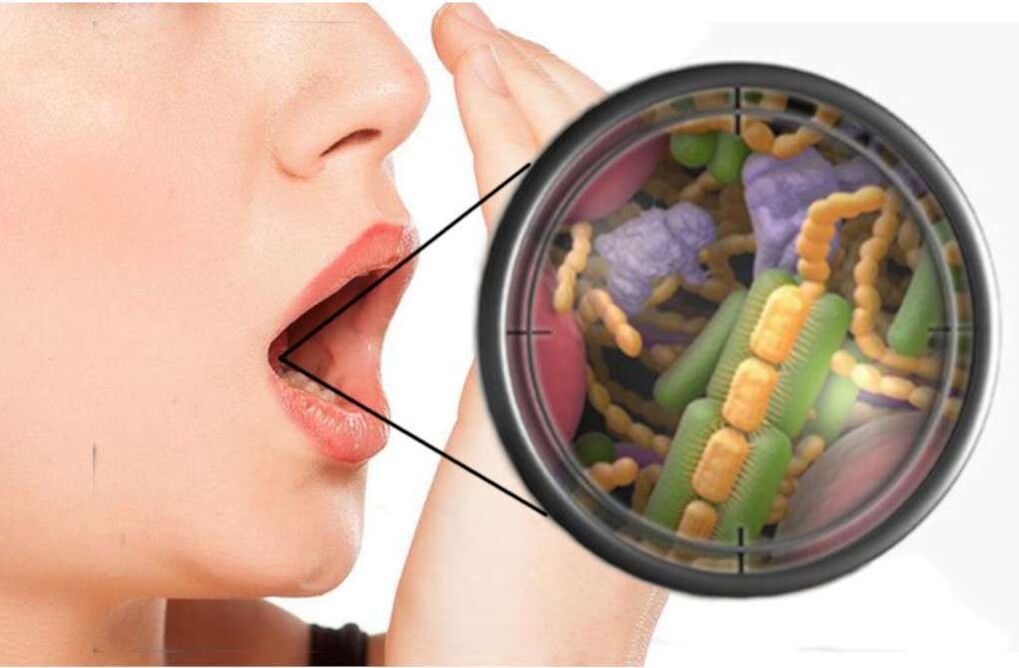
It is not always possible to completely eliminate the odor. But most of the smell can be removed with plenty of clean water.
Those. When you drink a lot of water (starting from 3 liters a day), excess ketones are excreted through urine and sweat. This eliminates most of the odor after you shower. In addition, it improves well-being (eliminates lethargy).
Interesting fact: The ketogenic diet was originally invented for epileptics.
Why we don't recommend it: the dangers of eating fats
For one simple reason: this is not a balanced diet. And those diets, which openly demonize any food, are not at all included in our concept: "Beauty does not require sacrifice, beauty requires health. "What kind of freedom from the pressures of the Pope can we talk about when you exclude a large amount of food from your diet?

We do not deny that the body can exist more or less adequately in conditions of minimal or complete absence of carbohydrates, subject to an adequate intake of proteins and the physiologically necessary amount of fats, but the ideal is to ensure the presence of all three nutrients in the diet. . that is to say. Use a balanced diet to lose weight!
Is it possible to lose weight?
Often, people, in search of weight loss, begin to believe in all sorts of fairy tales like "exclude this food group and the weight will disappear by itself. "This is where monsters like the paleo diet are born.
Let's look at this interesting question with you: "Is it possible to lose weight by eliminating proteins, carbohydrates or fats from the diet? " The brilliant Line McDonald will help us with this (the following are excerpts from his work).
Let's imagine that you eat a certain amount of calories, but you get them from different sources: in the first case, you will get them mainly from carbohydrates; in the second, proteins and in the third, fats.
About carbohydrates
Let's imagine that we get most of our calories from carbohydrates. Carbohydrates are rarely converted to fat (a process called de novo lipogenesis) under normal dietary conditions.
There are exceptional situations, for example, chronic excessive consumption of carbohydrates. This means between 700 and 900 grams of net carbs per day for several days.
In this situation, carbohydrates overwhelm glycogen stores, exceeding the number of calories required per day, and you end up converting carbohydrates into body fat.
But when you eat more carbs, you burn more carbs and less fat. And that's why, even if carbs don't convert directly to fat, too many carbs make you fat.
In general, by inhibiting the breakdown of fats, an excess of carbohydrates forces us to store all the fats we ingest in the form of subcutaneous reserves, preventing the burning of existing ones.
Yes, carbs don't directly make you fat through fat storage, but excess carbs still affect your fat stores, preventing you from burning the fat you eat during the day.
This is why exceeding your daily caloric intake by 500 calories from fat or 500 calories from carbohydrates makes you fat, they just do it for different reasons and in different ways.
An extra 500 calories of fat are simply stored under the skin, and 500 calories of carbohydrates cause all the fat consumed during the day to become reserves, because the carbohydrates will be oxidized, not the fats.
Bottom line: When you eat more carbs, you burn more carbs and less fat; When you eat fewer carbs, you burn fewer carbs and more fat. Unexpected, right?
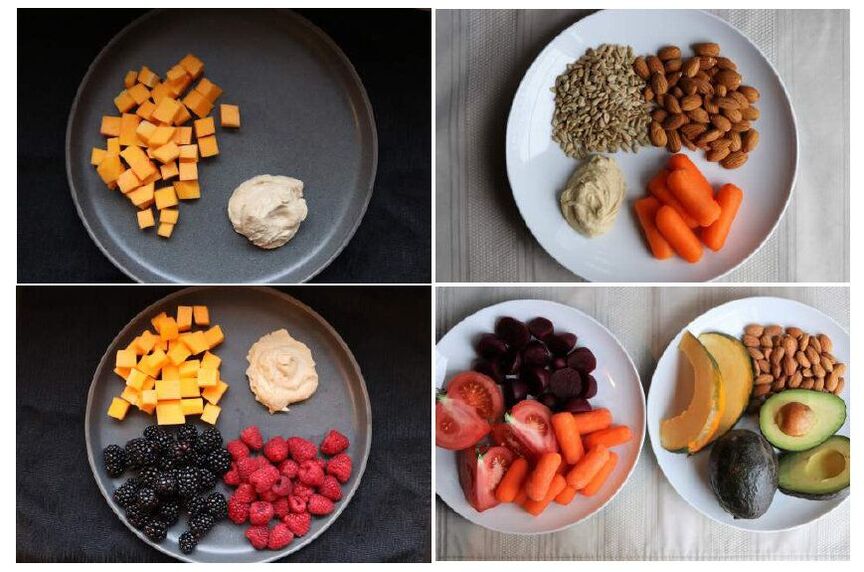
in a squirrel
Protein Buddy is never converted to fat or stored that way. But if you eat a lot of protein, the body will use it for energy (rather than carbohydrates and fats), which means other nutrients will be stored.
As a result, eating too much protein will make you fat, but not directly, but due to the fact that all the fat you eat goes under the skin.
Of course, protein has the greatest thermic effect, so more of the incoming calories will be used to digest food. Excess protein is less likely to make you gain weight anyway, but if you exceed the calorie balance, you will still gain weight.
But not through the direct conversion of protein into fat, but through a decrease in the amount of other nutrients burned.
Simply put: if you eat more protein, you burn more protein (and therefore less fat and carbohydrates); Eat less protein and you'll burn less protein (and therefore more carbs and fat). Presenting your face, you now clearly look like this:
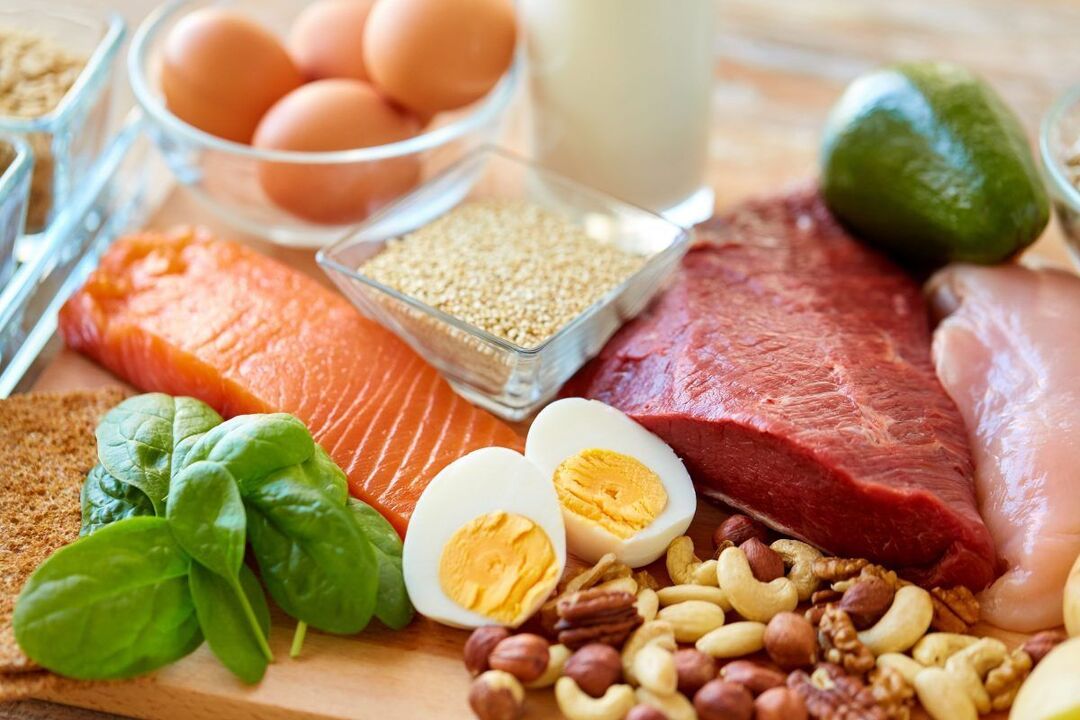
in fat
Fats supplied with food are mainly stored, if more are eaten, this does not significantly affect the oxidation of subcutaneous fat.
When fats are eaten, their destiny is to be deposited in fat reserves, because. . . Its consumption has very little effect on fat oxidation. It also has no significant effect on protein or carbohydrate oxidation.
General conclusion: all three options make you fat, but the mechanisms are different.
The only difference is that fat is stored directly and proteins and carbohydrates force you to store the fat you eat.
Of course, there will be those who misunderstand that low-carbohydrate and/or low-protein diets have no advantage over others in terms of burning subcutaneous fat.
But with these diets, although you burn more fat, you also eat more fatty foods. Therefore, the overall fat balance remains the same, despite changes in other components. No matter how you look at it, it all comes down to energy balance and calorie deficit.
Surely you have a logical question, why not stop eating fat?
This is because carbohydrates are converted to fat through de novo lipogenesis. This is the case when the amount of fat consumed through the diet falls below 10% of the total calories consumed. In this case, your body starts the lipogenesis process de novo, so you will still gain weight.
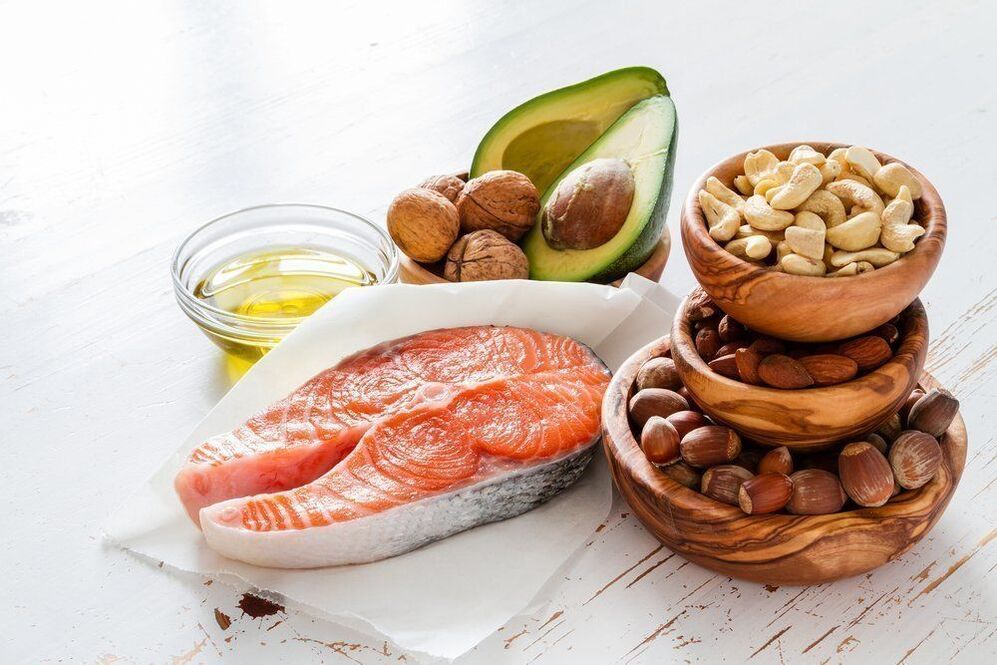
The body is smarter than us. In a situation of adequate fat intake (that is, above 10% of total calories), the destination of the fat we eat is to be stored in fat reserves, and proteins and carbohydrates are used for other processes.
And when the amount of fat consumed is too small, the body begins to convert carbohydrates (and most likely proteins, although much less frequently) to store them as fat.
lie or truth
Of course, under certain conditions, the ketogenic diet will work and you will lose weight. But it's not about her, nor about fats nor about a special menu. The fact is that you will simply eat less!
They've been denigrating diets for so long, but people don't believe it: and rightly so, because diets work!
Here, for example, is a meta-analysis of about 50 studies that compared 11 popular diets that can be grouped: low-carbohydrate (Atkins, South Beach, Zone), low-fat (Ornish, Rosemary Conley), balanced (Jenny Craig, Nutrisystem , Weight Watchers ).
It turned out that (surprise) any weight loss diet is better than no diet at all.
After six months, people on low-carb diets lost more weight. But the overall difference in weight loss (differences in indicators) between all diets is insignificant - a few hundred grams.
For example, with low-carbohydrate diets for 6 months, the average weight loss was 8. 73 kg and 7. 25 kg in 12 months, and with low-fat diets 7. 99 kg in 6 months and 7. 27 kg in 12 months.
Research has shown that, compared to a very calorie-restricted diet, a low-carb diet may be slightly more effective for short-term weight loss.
This is partly due to a decrease in the body's glycogen stores (in the liver and muscles) and the associated fluid loss (amounting to about 2 kg in a typical adult). But, as we can see, in the long term there is very little difference between them.
A study comparing low-carb and low-fat diets over the past 2 years found that there was no significant difference in weight loss between the two.
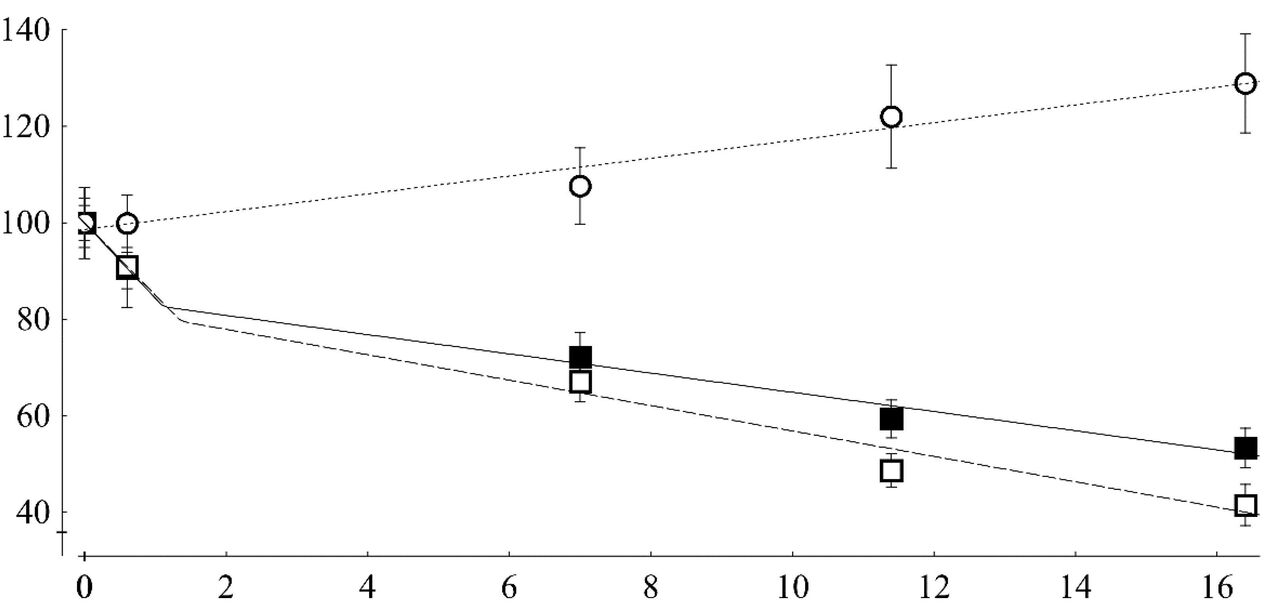
By the way, keep in mind that the diet was most effective during the first six months. And after a year, the overall weight began to increase. A striking example of metabolic adaptation.
Benefit and effect
The ketogenic diet does not make you hungry and does not remove calories. Broadly speaking, we simply compensate for the decrease in carbohydrates with proteins and fats.
Of course, this does not mean that by drastically reducing carbohydrate intake, you can overeat fatty and protein foods. Calorie intake should be kept within normal limits. Another undoubted advantage of the ketogenic diet is appetite control.
Many people who have followed one diet or another know that the greatest appetite appears right during the diet. The ketogenic diet eliminates the feeling of hunger. Fatty and protein foods, which the ketogenic diet is rich in, allow a person not to experience a brutal appetite and at the same time lose weight.
To damage
Considering that the ketogenic diet emphasizes fatty and protein foods, digestive disorders are possible: heaviness in the stomach, bloating and constipation.
This is because the diet contains virtually no fiber, which is found in bread, potatoes, fruits and vegetables. To avoid digestive problems, it is advisable to consume some vegetables and fruits in minimal quantities. For example, sour cabbage and grapes are suitable.
Another disadvantage of the ketogenic diet is the unpredictability of glucose deficiency. It is unknown how your body will behave if you deprive it of such an important energy resource.
It will take time for the body to convert to ketone bodies. As a rule, in the first week a person feels malaise, dizziness and general weakness. It is important to last at least 21 days to see the results of the diet.
A decrease in the amount of micronutrients (vitamins/minerals, etc. ) is common in any low-carb diet, because most of the micronutrients come from carbohydrate foods. Therefore, it is necessary to use vitamin and mineral complexes.
A decrease in blood acidity occurs in response to an increase in the amount of ketones in it.
If you have problems with carbohydrate metabolism (for example, diabetes), you may have vomiting and "ketoacidosis. "In a healthy body, ketones are used without consequences. By the way, the smell of acetone confirms this (a sign of ketone utilization).
We're already seeing people in ketosis jumping into the comments shouting, "I've been in ketosis for 116 days and I'm more active than ever! "We tell you our personal opinion, people in ketosis are worse than vegans in online battles. Not all, but for some reason a lot.
Go to any article on this topic and you will see buckets of dirt thrown at the author, simply because he does not write laudatory odes to fat. We always advise them to eat buckwheat and calm down.
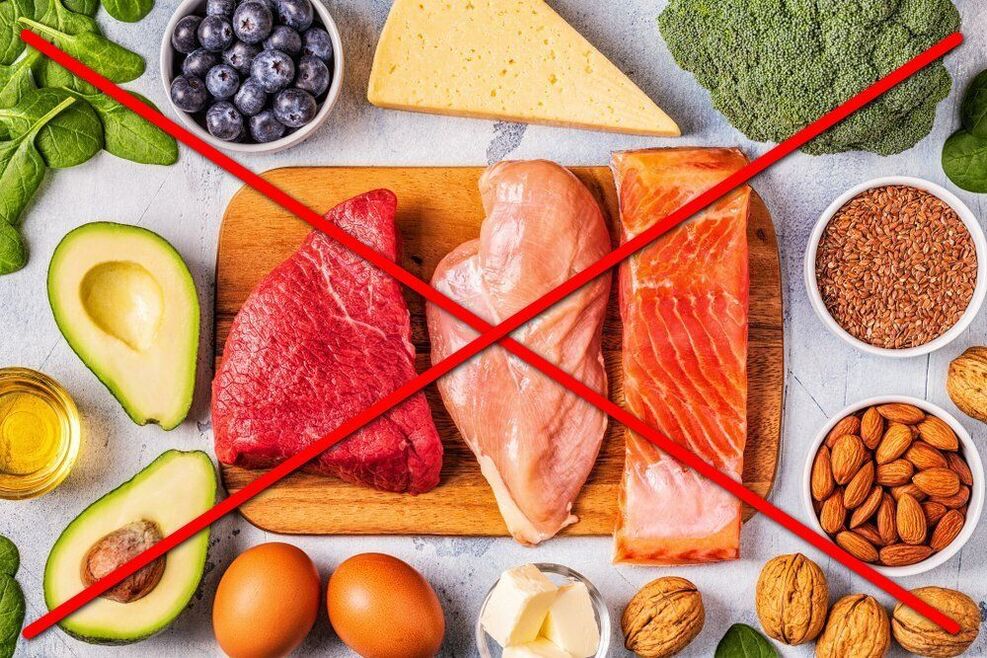
This is probably due to the fact that a person projects his internal and personal dispute onto others. This happens especially often in nutrition/sports/religion issues. For example, a person's mind is forced to constantly argue with many factors, and that person seeks to express arguments against them out loud, in a dispute with an external opponent, in order to feel like a winner.
Another example is that a neophyte of some food system suppresses his own doubts in this type of dispute. In short, these people are not arguing with you, but with themselves, it is better not to bother them, they will bite you to death, you are made of proteins and fats.
Also, if you personally "everything is a lie, I don't eat coals and I feel very good", this does not mean that this also happens to others! An individual's personal experience cannot prove or disprove anything.
Because? Yes, because these "personal opinions" and reviews of yours are a cart and a cart and everyone is different. Who will you trust, who has a nicer nickname?
Contraindications for use
In case of any health deviation, any diet or exercise should be used only after consulting a doctor. People with diseases of the kidneys, digestive system, or intestines should not follow the ketogenic diet.
At first, glucose deficiency greatly affects brain activity, so such a diet is undesirable for mental workers.
And by the way, the American Dietetic Association does not recommend the keto diet due to ketoacidosis, but other diets that contain more carbohydrates are recommended.
Reference: Diabetic ketoacidosis (ketoacidosis) is a variant of metabolic acidosis associated with impaired carbohydrate metabolism as a result of insulin deficiency - high concentrations of glucose and ketone bodies in the blood.
The ketogenic diet, on the one hand, is simple, on the other, very difficult. Of course, it all depends on the shape chosen. Some people act so fanatically that the diet ends badly. You cannot neglect the rules of the diet, you must listen to your body and give it a break. After all, the main thing is health, we must not forget about it. Think for yourself, decide for yourself.






























